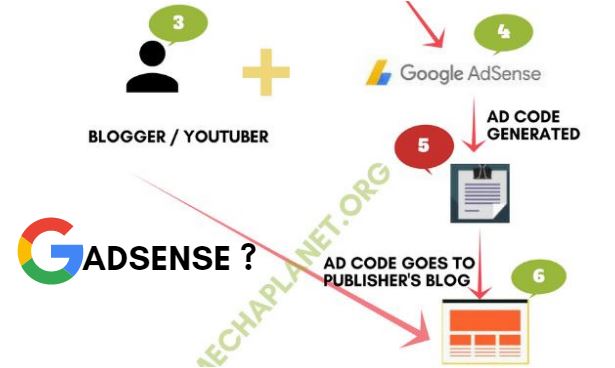1) Tell me and I’ll forget,
show me and I may remember,
involve me and I’ll understand.
Chinese proverb.
Why is this important?
It’s important because Web2.0 has redefined selling for many businesses. Selling really is a people business–you need to connect with people on a much deeper level to sell very successfully. People need to understand why your product is right for them in order for them to trade their hard earned money for your product or service. The problem is money is scarce and is a finite thing for most people. People can spend all their money on a huge list of needs and wants–in fact the evidence of our current economy shows people are willing to spend more than they have on things that they want. That aside, as a seller, you need to involve people in your product or service before they trade the money so they UNDERSTAND what it will do for them. They understand. They make the decision. All you’ve done is offer them a way to experience it. Only then will they move you up to their A List for priority purchasing.
2) Surround yourself with skeptics, not true believers who tell you what you want to hear. Demand that your gatekeepers be truth tellers, too, and that they push back whenever they see a lapse in judgement on your part.
David F. D’Alessandro.
Why is this important?
It’s vital to your companys’ success. Hearing what you want to hear leads you down only one path. It leads to the fall of empires and is at least partly responsible for the vast removal of capital from our economy most recently. People only wanted to hear about the good things, even when the risks may have been conspicuously absent. Skeptics question everything. They force you to have the answers to tough questions and never allow you to ignore things best left quiet. Through this open approach a greater integrity is born. This all presupposes your willingness to hear it as well. You must avoid getting your back up or creating an environment hostile to questioning by being receptive, honest and fair. These attributes will bring success.
3) It’s not what you pay a man but what he costs you that counts.
Will Rogers.
Why is this important?
I found this particularly interesting because there are so many employees out there who don’t recognize they work where they do by choice, they trade their time for money, and they are working to create value in some way. If they don’t understand these principles then as a business owner–you’ve failed as an employer. While employees do indeed sit on the cost side of the accounting ledger, they truly are an investment intended to get a Return on Investment. You should sit down with your employees and together define how they will give you a return on investment exceeding their cost—hopefully by 2X, 5X or even 10X their salary.
4) No person can be a great leader unless he takes genuine joy in the successes of those under him.
Anonymous.
Why is this important?
If you’re too busy deciding who’s taking credit for something, and who’s going to fall for something, you’re not even a good leader–you’re acting like a 4 year old. There is sufficient proof out in the world that more is accomplished by a team working together than by the sum of all the individuals working apart. A great leader surrounds herself with the best available people, gives them authority, autonomy and allows the best to rise to the top on their own merits. As a business owner–if you can hire people you honestly believe you might actually work for one day—let it happen! Thus the tide raises all ships.
5) I praise loudly and blame softly.
Catherine the Great.
Why is this important?
People know when they screw something up and usually the self-admonishing is more than enough. On top of which blame doesn’t change what happened. Praise goes so far–it goes beyond money, beyond boundary and beyond fence. I’ve seen super high income earners leave their jobs because why? They didn’t get so much as a ‘thank-you.’ The money doesn’t matter so much as the praise. As a business owner–don’t use this as an excuse to under-pay people because you have to treat people fairly…but praise will keep great people working for you longer than you’ll imagine.
6) Work expands so as to fill the time available for its completion.
C. Northcote Parkinson.
Why is this important?
The importance can be seen looking along the lines of ‘if you want something done–give it to a busy person.’ Work really is a four letter word isn’t it? You can waste huge amounts of time trying to get something absolutely perfect. George Patton said something along the lines of ‘its a far better plan if violently executed today than perfectly done tomorrow–tomorrow never comes.’ The Pareto Principle come to mind as well in that 80% of the work occurs in the final 20% of perfection. Now before you go criticizing this as condoning sloppy workmanship and low quality standards look to the over-arching principles and do what Nike does very well: Just Do It. Then move on. This is all about results vs activity.
7) Twenty percent of your products will generate eighty percent of your income.
Twenty percent of your income will require eighty percent of your resources.
Vilfredo Pareto.
Why is this important?
The Pareto Principle is so important I can’t believe people haven’t heard of it. It translates into every aspect of your business. 20% of your customers will make you 80% of your profit. Don’t mix up profit with revenue. The other 20% of your customers will cost you 80% of your time. Time is both finite and your biggest asset. DO NOT WASTE YOUR TIME. Guard your time like it’s the only thing you have. Use your time working with the 20% of the people who make you 80% of your profit.This will allow you to remain in business.
8) Cut your losses and let your profits run.
Anonymous.
Why is this important?
This is another block-buster in my books. In your business–you need to be testing ideas all the time. Thomas Edison is purported to have ‘invented 998 ways NOT to make a light-bulb.’ I’m a big believer in the idea that the only shame in falling is not getting back up. Try new ideas. Work off your strengths, hire for your weaknesses and do what you know best. Then test and compare. Which ever idea produces the best result– go with it. Then test again. Which ever idea produces the best result–go with it. This will create an evolution in your business that will find trends without you having to see them.
9) If you can run one business well
you can run any business well.
Richard Branson.
Why is this important?
For a couple of reasons: Richard Branson has built empires and branched out in all sorts of avenues so he’s living proof. It also tells me there over-riding principles of success transcending the specifics of a discipline or education. People can be educated out the yin-yang but I’ve met some MBA’s who can’t do a lot of what I can do without one. As a business person–when it comes time to hire someone–keep this in mind; you’ll be able to ferret out what a person’s accomplished and know they’ll be able to accomplish it again with your firm.
10) It’s not how much you make that counts,
but how much money you keep.
Robert Kiyosaki
Why is this important?
It’s the difference between revenues (how much you make) and margin (what you keep.) It applies to every business and every person I can think of. You can make $1,000,000.00 annually but if you spend $1,100,000.00 to make your million then your million isn’t either worth very much or sustainable. What counts is how much keep. As a business owner you have to manage your costs, understand your metrics and try to keep as much as you can. Things like average transaction size, frequency of purchase, lifetime for your client, first purchase revenue, lifetime customer profit and client acquisition costs are paramount to your understanding of your business. This is why I focus on this for the first segment of my consulting practice.
I’m also a big fan of under-promising and over-producing so here’s my free bonus:
11) Never mistake activity for achievement.
John Wooden
Why is this important?
It’s especially important where you have employees in your own building. People are busy tooing and froing, back and forth, off to meetings, files under their arms. Don’t mistake this for getting results. Part of the beauty of having contract workers off-site is all you see is their achievement–delivered as per the contract. With employees who are in your office space though–it’s important to make sure you assess their achievements and results apart from how busy they may appear to be.





